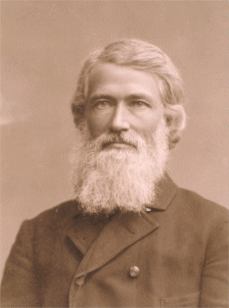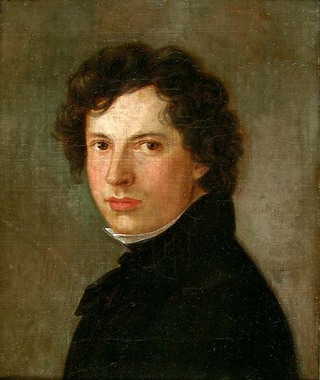|
Arne Løchen
Arne Løchen (20 November 1850 – 22 August 1930) was a Norwegian psychologist, philosopher and literary researcher. Arne Løchen was born in Vang (now Hamar), in Hedmark county, Norway. He was the twin brother of Einar Løchen, politician for the Liberal Party. His family also included his brothers, Kalle Løchen (1865-1893) who was an artist and Hjalmar Løken, editor of the ''Dagsposten'' and ''Norske Intelligenz-Seddeler''. Løchen was awarded ex. phil. (1870) and doctorate (1886). He was a professor of philosophy at the University of Oslo (1900-1921). Among his works is an essay on Ibsen regarded as important for later research, and a monography on Johan Sebastian Welhaven. He was co-editor of the magazine ''Nyt Tidsskrift'' from 1892 to 1895. He was a member of the Norwegian Academy of Science from 1898. He was decorated a Knight of the Order of the Dannebrog The Order of the Dannebrog () is a Denmark, Danish order of chivalry instituted in 1671 by Christian V of ... [...More Info...] [...Related Items...] OR: [Wikipedia] [Google] [Baidu] |
Nyt Tidsskrift
''Nyt Tidsskrift'' is a former Norwegian language, Norwegian literary, cultural and political periodical issued from 1882 to 1887, and with a second series from 1892 to 1895. The periodical had contributions from several of the leading intellectuals of the time, including later Nobel Prize in Literature laureate Bjørnstjerne Bjørnson, later Nobel Peace Prize laureate Fredrik Bajer, the writers Alexander L. Kielland, Jonas Lie (writer), Jonas Lie, Arne Garborg and Hans Aanrud, proponents for women's rights Camilla Collett, Gina Krog and Hagbard Emanuel Berner, and painter Erik Werenskiold. The first years, 1882–1887 From 1882 to 1887 the periodical was edited by literary historian Olaf Skavlan and historian Ernst Sars. It was published by Huseby & Co, which was owned by Olaf Huseby and Johan Sørensen. 1882 The very first issue in 1882 started by publishing the short story "Støv" () by Bjørnstjerne Bjørnson. Geologist and politician Amund Helland started an article series ... [...More Info...] [...Related Items...] OR: [Wikipedia] [Google] [Baidu] |
Norwegian Psychologists
Norwegian, Norwayan, or Norsk may refer to: *Something of, from, or related to Norway, a country in northwestern Europe *Norwegians, both a nation and an ethnic group native to Norway *Demographics of Norway *Norwegian language, including the two official written forms: **Bokmål, literally "book language", used by 85–90% of the population of Norway **Nynorsk, literally "New Norwegian", used by 10–15% of the population of Norway *Norwegian Sea Norwegian or may also refer to: Norwegian *Norwegian Air Shuttle, an airline, trading as Norwegian **Norwegian Long Haul, a defunct subsidiary of Norwegian Air Shuttle, flying long-haul flights * Norwegian Air Lines, a former airline, merged with Scandinavian Airlines in 1951 *Norwegian coupling, used for narrow-gauge railways *Norwegian Cruise Line, a cruise line *Norwegian Elkhound, a canine breed. * Norwegian Forest cat, a domestic feline breed *Norwegian Red, a breed of dairy cattle *Norwegian Township, Pennsylvania, USA Norsk ... [...More Info...] [...Related Items...] OR: [Wikipedia] [Google] [Baidu] |
Academic Staff Of The University Of Oslo
An academy (Attic Greek: Ἀκαδήμεια; Koine Greek Ἀκαδημία) is an institution of tertiary education. The name traces back to Plato's school of philosophy, founded approximately 386 BC at Akademia, a sanctuary of Athena, the goddess of wisdom and Skills, skill, north of Ancient Athens, Athens, Greece. The Royal Spanish Academy defines academy as scientific, literary or artistic society established with public authority and as a teaching establishment, public or private, of a professional, artistic, technical or simply practical nature. Etymology The word comes from the ''Academy'' in ancient Greece, which derives from the Athenian hero, ''Akademos''. Outside the city walls of Athens, the Gymnasium (ancient Greece), gymnasium was made famous by Plato as a center of learning. The sacred space, dedicated to the goddess of wisdom, Athena, had formerly been an olive Grove (nature), grove, hence the expression "the groves of Academe". In these gardens, the philos ... [...More Info...] [...Related Items...] OR: [Wikipedia] [Google] [Baidu] |
People From Hamar
The term "the people" refers to the public or common mass of people of a polity. As such it is a concept of human rights law, international law as well as constitutional law, particularly used for claims of popular sovereignty. In contrast, a people is any plurality of persons considered as a whole. Used in politics and law, the term "a people" refers to the collective or community of an ethnic group or nation. Concepts Legal Chapter One, Article One of the Charter of the United Nations states that "peoples" have the right to self-determination. Though the mere status as peoples and the right to self-determination, as for example in the case of Indigenous peoples (''peoples'', as in all groups of indigenous people, not merely all indigenous persons as in ''indigenous people''), does not automatically provide for independent sovereignty and therefore secession. Indeed, judge Ivor Jennings identified the inherent problems in the right of "peoples" to self-determination, as i ... [...More Info...] [...Related Items...] OR: [Wikipedia] [Google] [Baidu] |
1930 Deaths
Events January * January 15 – The Moon moves into its nearest point to Earth, called perigee, at the same time as its fullest phase of the Lunar Cycle. This is the closest moon distance at in recent history, and the next one will be on January 1, 2257, at . * January 26 – The Indian National Congress declares this date as Independence Day, or as the day for Purna Swaraj (Complete Independence). * January 28 – The first patent for a field-effect transistor is granted in the United States, to Julius Edgar Lilienfeld. * January 30 – Pavel Molchanov launches a radiosonde from Pavlovsk, Saint Petersburg, Slutsk in the Soviet Union. February * February 10 – The Việt Nam Quốc Dân Đảng launch the Yên Bái mutiny in the hope of ending French Indochina, French colonial rule in Vietnam. * February 18 – While studying photographs taken in January, Clyde Tombaugh confirms the existence of Pluto, a celestial body considered a planet until redefined as a dwarf planet ... [...More Info...] [...Related Items...] OR: [Wikipedia] [Google] [Baidu] |
1850 Births
Events January–March * January 29 – Henry Clay introduces the Compromise of 1850 to the United States Congress. * January 31 – The University of Rochester is founded in Rochester, New York. * January – Sacramento floods. * February 28 – The University of Utah opens in Salt Lake City. * March 5 – The Britannia Bridge opens over the Menai Strait in Wales. * March 7 – United States Senator Daniel Webster gives his "Seventh of March" speech, in which he endorses the Compromise of 1850, in order to prevent a possible civil war. * March 16 – Nathaniel Hawthorne's historical novel '' The Scarlet Letter'' is published in Boston, Massachusetts. * March 19 – American Express is founded by Henry Wells and William Fargo. * March 31 – The paddle steamer , bound from Cork to London, is wrecked in the English Channel with the loss of all 250 on board. April–June * April 4 – Los Angeles is incorp ... [...More Info...] [...Related Items...] OR: [Wikipedia] [Google] [Baidu] |
Norsk Biografisk Leksikon
is the largest Norwegian biographical encyclopedia. It is part of the '' Great Norwegian Encyclopedia''. Origin The first print edition (NBL1) was issued between 1923 and 1983; it included 19 volumes and 5,100 articles. Kunnskapsforlaget took over the rights to NBL1 from Aschehoug in 1995, and work began on a second print edition (NBL2) in 1998. The project had economic support from the Fritt Ord Foundation and the Ministry of Culture, and NBL2 was launched in the years 1999–2005, including 10 volumes and around 5,700 articles. Online access In 2009 an Internet The Internet (or internet) is the Global network, global system of interconnected computer networks that uses the Internet protocol suite (TCP/IP) to communicate between networks and devices. It is a internetworking, network of networks ... edition, with free access, was released by together with the general-purpose . The electronic edition features additional biographies, and updates about dates of ... [...More Info...] [...Related Items...] OR: [Wikipedia] [Google] [Baidu] |
Order Of The Dannebrog
The Order of the Dannebrog () is a Denmark, Danish order of chivalry instituted in 1671 by Christian V of Denmark, Christian V. Until 1808, membership in the Order was limited to fifty members of noble or royal rank, who formed a single class known as ''White Knights'' to distinguish them from the ''Blue Knights'' who were members of the Order of the Elephant. In 1808, the Order was reformed and divided into four classes. The statute of the Order was amended in 1951 by a Royal Ordinance so that both men and women could be members of the Order. Today, the Order of the Dannebrog is a means of honouring and rewarding the faithful servants of the modern Danish state for meritorious civil or military service, for a particular contribution to the arts, sciences or business life, or for working for Danish interests. Insignia The ''badge'' of the Order is a white enamelled Flag of Denmark, Dannebrog cross (i.e., a cross pattée, the lower arm being longer than the others) with a red ... [...More Info...] [...Related Items...] OR: [Wikipedia] [Google] [Baidu] |
Norwegian Academy Of Science
The Norwegian Academy of Science and Letters (, DNVA) is a learned society based in Oslo, Norway. Its purpose is to support the advancement of science and scholarship in Norway. History The Royal Frederick University in Christiania was established in 1811. The idea of a learned society in Christiania surfaced for the first time in 1841. The city of Trondhjem had no university, but had a learned society, the Royal Norwegian Society of Sciences and Letters, established in 1760. The purpose of a learned society in Christiania was to support scientific studies and aid publication of academic papers. The idea of the Humboldt-inspired university, where independent research stood strong, had overtaken the instrumental view of a university as primarily a means to produce civil servants. The city already had societies for specific professions, for instance the Norwegian Medical Society, which was founded in 1833. However, these societies were open to both academics within medicine as well ... [...More Info...] [...Related Items...] OR: [Wikipedia] [Google] [Baidu] |
Johan Sebastian Welhaven
Johan Sebastian Cammermeyer Welhaven (22 December 1807 – 21 October 1873) was a Norway, Norwegian writer, poet, critic, and art theorist. He has been considered "one of the greatest figures in Norwegian literature." Background Johan Welhaven was born in Bergen, Norway in 1807. His grandfather, Johan Andrew Welhaven (1748–1811) was a teacher and later assistant to the pastor at St Mary's Church, Bergen, St Mary's Church (''Mariakirken''), which served the city's German community. The author's father, Johan Ernst Welhaven (1775–1828), was a pastor at St. George's Hospital, (''St. Jørgens spedalskehospital''), while his mother, Else Margaret Cammermeyer, was the daughter of Johan Sebastian Cammermeyer, resident chaplain of Holy Cross Church, Bergen, Holy Cross Church (''Korskirken''). Johan Welhaven was the member of an accomplished family which included his sister socialite Maren Sars, the wife of theologian and biologist Michael Sars (1805–1869), and mother of historian ... [...More Info...] [...Related Items...] OR: [Wikipedia] [Google] [Baidu] |






